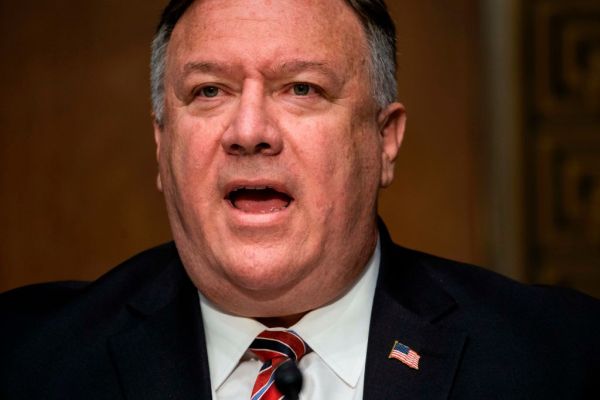Days after President Donald Trump announced he could use an executive order to ban TikTok from the United States, Secretary of State Michael Pompeo said the administration is “closing in on a solution and I think you’ll see the president’s announcement shortly.”
In an interview on Fox News’ “Sunday Morning Futures” host Maria Bartiromo, Pompeo also said that the Trump administration may take action against other Chinese tech companies doing business in the U.S., claiming that some are “feeding data directly to the Chinese Communist Party.”
Beijing-based ByteDance, TikTok’s owner, is currently in talks with Microsoft to sell its TikTok business in the U.S. and several other countries to the U.S. tech giant. The negotiations have taken on more urgency over the last two weeks as U.S. scrutiny of TikTok increased.
Microsoft said on Sunday that it is in discussions to buy TikTok’s operations in the U.S., Canada, Australia and New Zealand by September 15, and that its chief executive officer, Satya Nadella had talked to Trump about the president’s security concerns.
Reuters reported last week that ByteDance will completely relinquish control to Microsoft, even though it had previously wanted to hold onto a minority stake in the U.S. TikTok business.
Notably, Microsoft didn’t mention India in its statement, even though TikTok was banned there in June, along with 58 other apps developed by Chinese companies that the Indian government deemed potential threats to national security.
Treasury Secretary Steven Mnuchin said last Wednesday that TikTok is under review by the Committee on Foreign Investment in the U.S. (CFIUS). This follows an earlier investigation by the CFIUS into whether ByteDance’s acquisition of Musical.ly in 2018, which it merged with TikTok, constitutes a national security threat. A decision on the TikTok-Musical.ly review still hasn’t been released.
When asked by Bartiromo if a sale would be enough to placate the U.S. government, Pompeo said the Trump administration would “make sure that everything we have done drives us as close to zero risk for the American people.”
But several Republican lawmakers have said that a sale would not be enough. Marc Rubio, chairman of the Senate Intelligence Committee, told the Financial Times last week that TikTok still needs to answer questions about where its data is store and how it is protected.
“Until TikTok’s owners—regardless of who that might be—can answer these basic questions and get its story straight, I remain concerned about the company’s activities and reported ties to China,” Rubio said.
Beyond TikTok
The day before Pompeo’s Fox News interview, White House trade adviser Peter Navarro told Fox News that the Trump administration is also reviewing “any kind of software that sends the information for Americans back to servers in China.”
Pompeo also suggested that the U.S. government may take action against more Chinese technology companies.
“These Chinese software companies doing business in the United States, whether it’s TikTok or WeChat—there are countless more, as Peter Navarro said, are feeding data directly to the Chinese Communist Party, their national security apparatus, could be their facial recognition pattern, information about their residence, their phone numbers, their friends,” he alleged.
Pompeo added that Trump will “take action in the coming days with respect to a broad array of national security risks that are presented by software connected to the Chinese Communist Party,” but did not elaborate on what that will entail or what companies might be affected.
The U.S. government said last month that it may restrict WeChat in China, even though the version of WeChat available in the U.S. has far less features than the one in China, where it is used for payments, bookings e-commerce and other functions in addition to messaging.
While WeChat is ubiquitous in China, its user base in the U.S. is much smaller, and it is primarily used by members of the Chinese diaspora and foreign businesses that have operations or a connection in China.
[ad_2]
Source link


